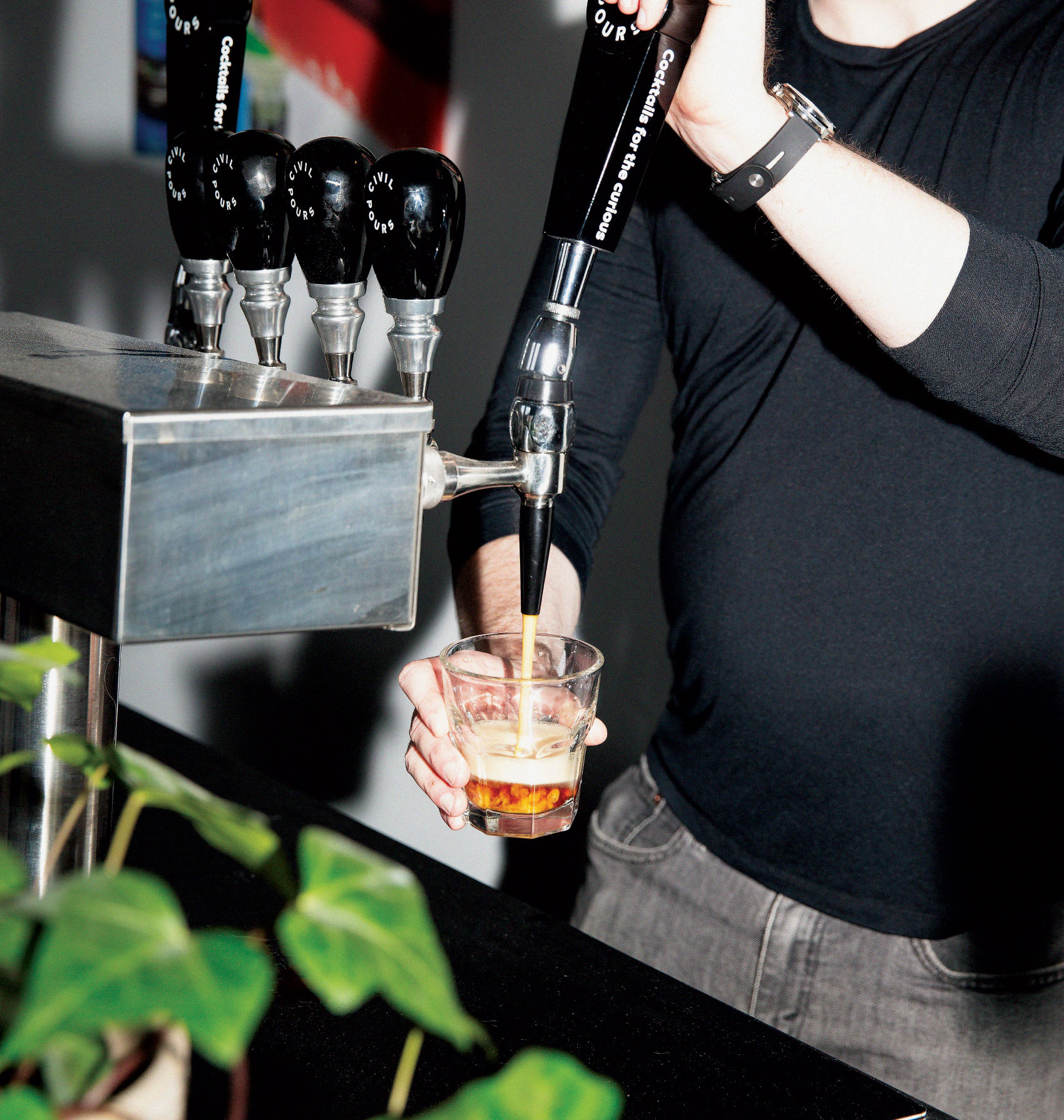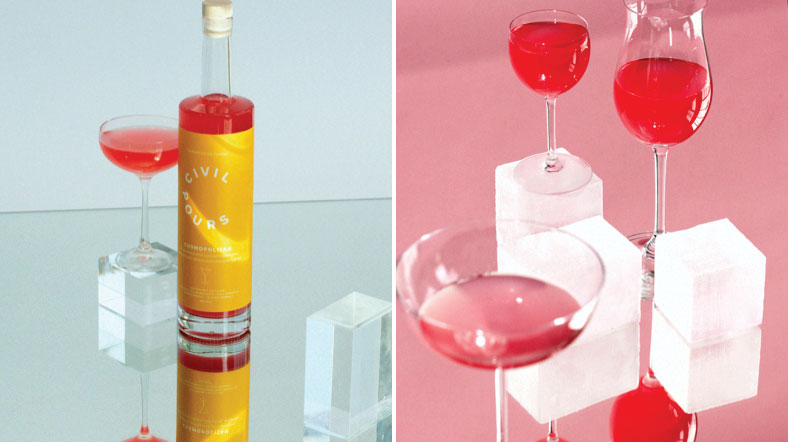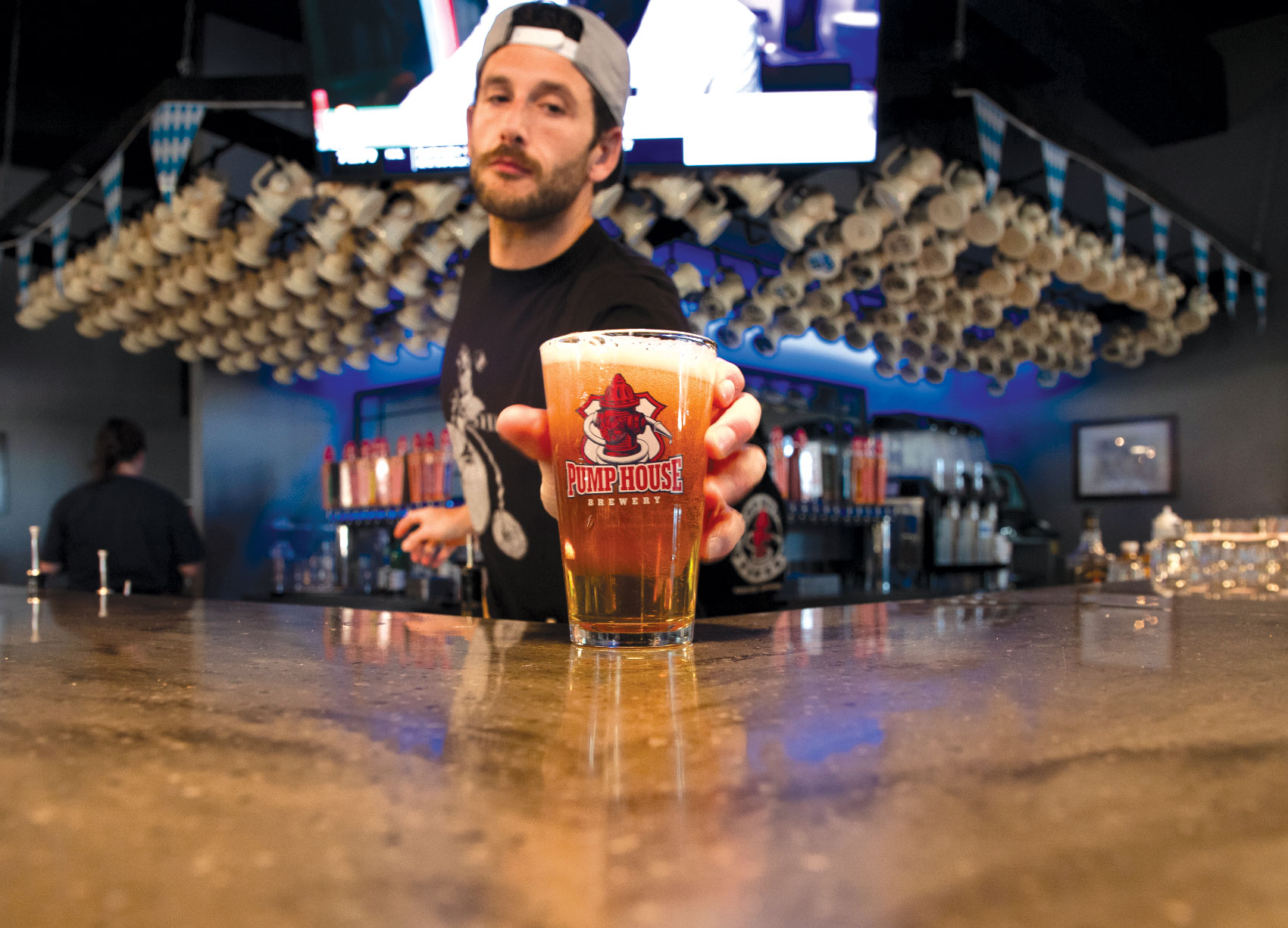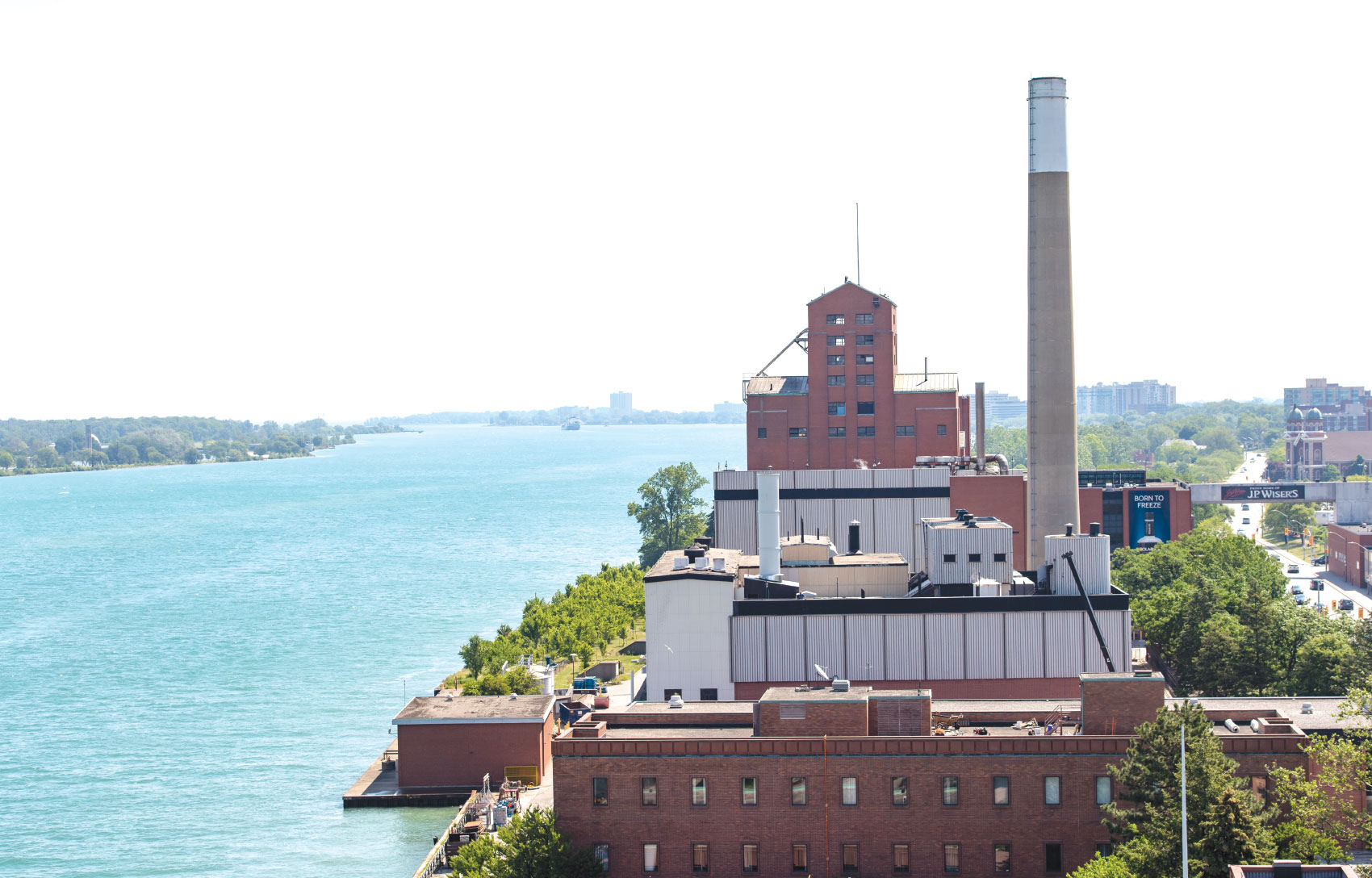From a classic old fashioned to a titillating margarita, a smooth espresso martini to a bright whisky sour, Civil Pours does it all.
One of Canada’s first draught cocktail and bottled cocktail producers, their creations can be found in partner restaurants like Cactus Club on draught and on the shelves in a few select stores and restaurants in Ontario.
At Civil Pours, the team is small but mighty. They have grown from a team of three at their inception to a team of ten staff. Along with their quick growth over four years, they are working on obtaining their own distillery license, while currently producing their finished product in Reid’s Distillery’s space.
The original focus for Civil Pours was business-to-business offerings for bars and restaurants, purely for cocktails. Their goal was to address pain points in the hospitality industry, including bottlenecks in service and labour, and cost challenges, which grew more difficult during the COVID-19 pandemic. In 2022, King Taps and Cactus Club were where Civil Pours’ first kegged cocktail products launched, with the Old Fashioned.
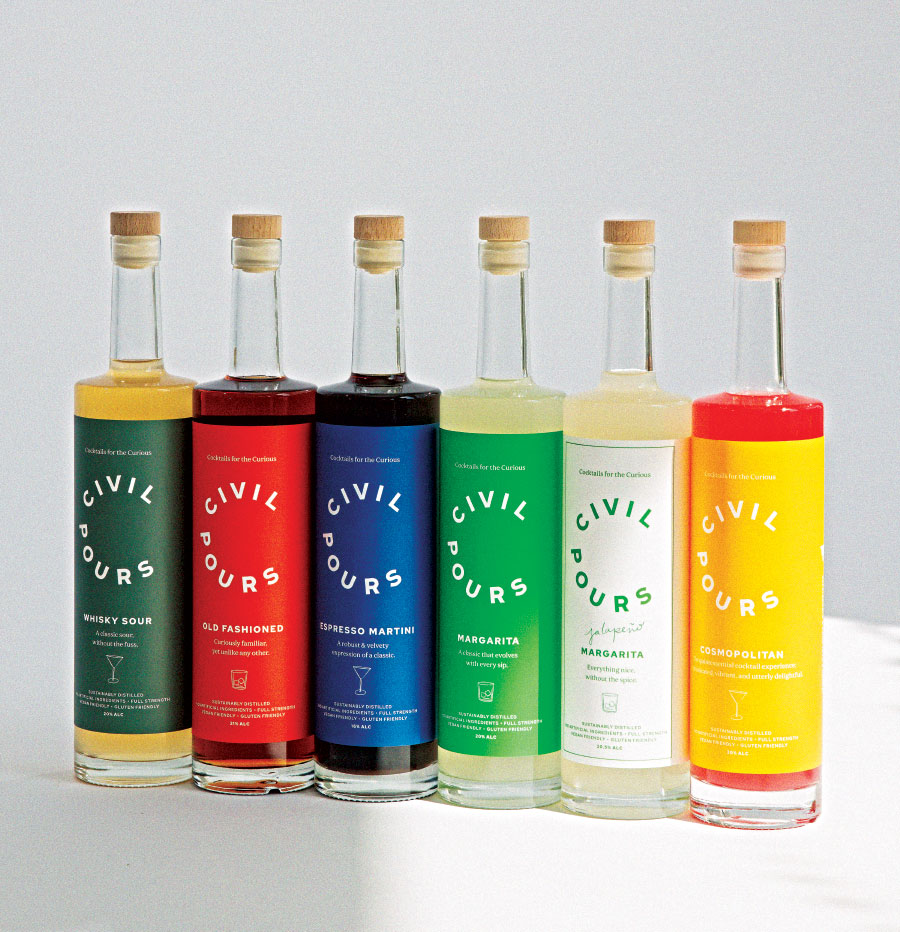
In 2024, Civil Pours moved from a smaller space with a local distillery to one about six times the footprint at Reid’s Distillery’s space, which can now hold Civil Pours’ production and office facilities in the same space.
“We were working with [the local distillery], [and] they were so gracious to allow us some space to research and develop our products. They were humble beginnings,” said Madison Homewood, head of research and development at Civil Pours.
She says they used pop-up picnic tables, noting that what they were able to achieve in that small space was truly impressive. “We made the most of that small space,” she said. “We are a very scrappy team of ‘make it work’ and ‘do the best you can with what you have and upgrade over time’ [people]. It was such an amicable decision between the local distillery and us moving forward. We found this space at Reid’s Distillery and it has really allowed us to grow.”
From their first cocktail, the classic Old Fashioned, Civil Pours has grown to include a full roster of cocktails. Their second launch was a margarita, which was created to stabilize citrus juice, a challenge in the hospitality industry due to its short shelf life and when it’s out-of-season.
The third cocktail to join the ranks was the espresso martini. With this one, the Civil Pours team needed to make sure the cocktail still had a froth in a draught format, motivated by the pain points of bartending, including the time producing espresso takes.
Their fourth launch was their unique Hesperidium, a dry curaçao or orange liqueur that was also motivated by a sustainable focus of utilizing excess citrus fruit waste in a partnership with Fairmont Royal York Hotel in Toronto.
We work like we are in the woods; we want our company to leave the world a better place.
Chris Williamson, Civil Pours
Fifth to join the roster was the Whiskey Sour, which had a unique motivation from their partnership with the Mule, a Mexican restaurant group, whose largest waste item was avocado pits. Civil Pours saw this as another challenge. They roasted the avocado pits, distilled them and found they created a product that has flavours much like an amaretto.
Jalapenos were another culprit of waste that Civil Pours has been able to divert from the landfill. Using seeds, stems and other parts that are otherwise headed to the trash bin, they created their Jalapeno Margarita.
Their newest and last addition to their lineup currently is the Cosmopolitan, which uses 100 per cent Muskoka cranberries and their orange distillate.
Their cocktail-making method is “a very niche process, but we are bringing out very concentrated flavours that allow us to use not as much of the core ingredients,” said Homewood. Their process for research and development is carefully thought out, considering what customers are asking for, what the market is looking for and what the current trends are. Then, after creating a classic bartender-made version to understand exactly what they are trying to create, they perform testing including ABV and sugar and acid levels. Then, they work backwards.
“We isolate what ingredients need to go in the rotary evaporator,” said Homewood. “Do we have a partner where we can secure these products? In the espresso martini, we use cacao husks, [and] there’s not a lot of market value to that product currently (sometimes it is used as mulch and very rarely as tea), but when chocolate comes into our food system, 10 per cent gets turned into chocolate and 90 per cent is going to waste. Just the sheer volume of that is a lot, so we wanted to give that another life as well.”
Innovation and sustainability are at the heart of their product line and business. Civil Pours isolates what ingredients need to go in their rotary evaporators to become the concentrated output and ensure that they have a partner that can secure the necessary ingredients.
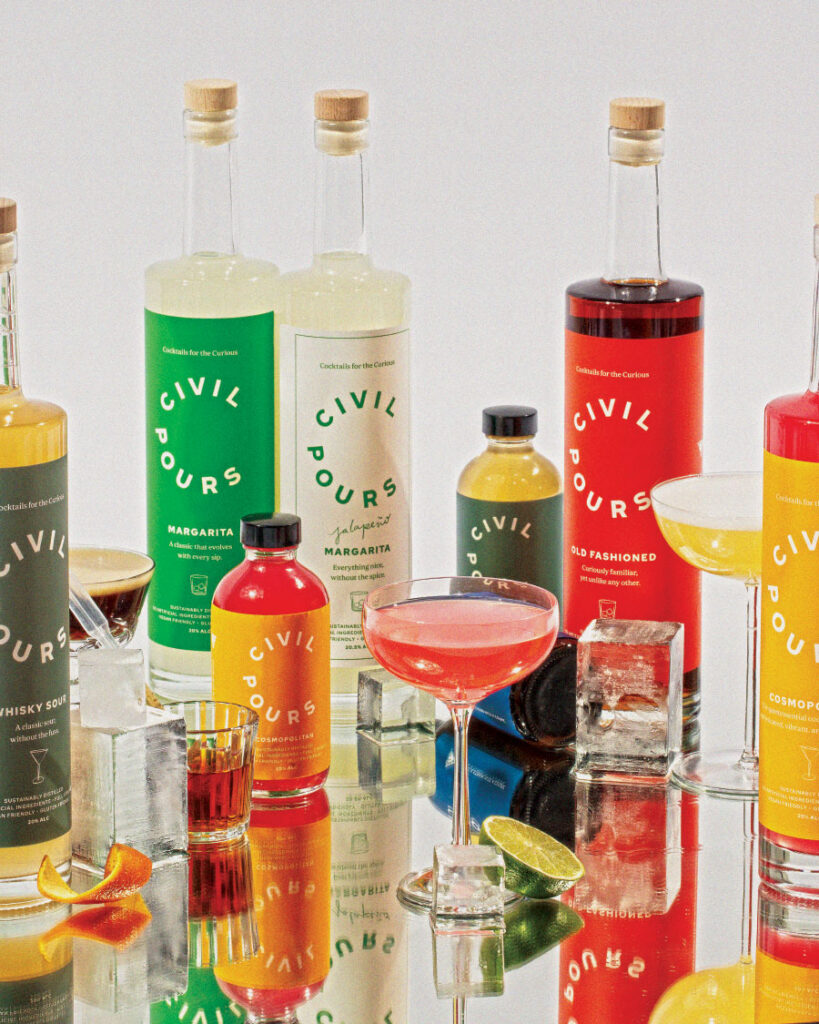
“Constraint is a source of creativity,” said Chris Williamson, director of sales and marketing at Civil Pours. “It was amazing how quickly the can-do attitude came into this organization. ‘Crawl, walk, run’ is really important to us – we do not want to be reckless, and we want to meet the commitments we make in a responsible and sustainable way as well.”
They focus on three main criteria: First, is there going to be a demand for the product? Second, can they make it effectively with their technology? And third, can they make it sustainably? “We work like we are in the woods; we want our company to leave the world a better place,” said Williamson. The main type of equipment that is allowing Civil Pours to produce their unique product line is their rotary evaporators, also known as vacuum stills, used in the process of vacuum distillation.
“This equipment allows us to take the atmospheric pressure out of the environment,” said Homewood. “Our raw ingredient goes in [there]. We do not make any base spirits; we partner with the people who do it best and we purchase bulk totes of these spirits.”
When they remove the atmospheric pressure from the system, it allows the ethanol to boil at a lower temperature than it normally would. Once the boiling occurs and the ethanol is turned into a gas, they precipitate it by running it through subzero temperatures of around -8 to -20 degrees Celsius, depending on what the final product is intended to be. Because of the super low temperatures, it makes it possible to preserve the natural flavours of the ingredients. “It precipitates into this beautiful, fresh and vibrant flavour,” said Homewood.
The other benefit to this process is it takes ingredients that are typically short on shelf life or perishable and they get blended into finished drinks that make them viable on the shelf. The shelf-life on Civil Pours’ products is well over a year non-refrigerated. “It is pretty cool that we are going through all of the processes – some from beer, some from wine, some from distilling – all to make some really cool finished products,” said Homewood.

